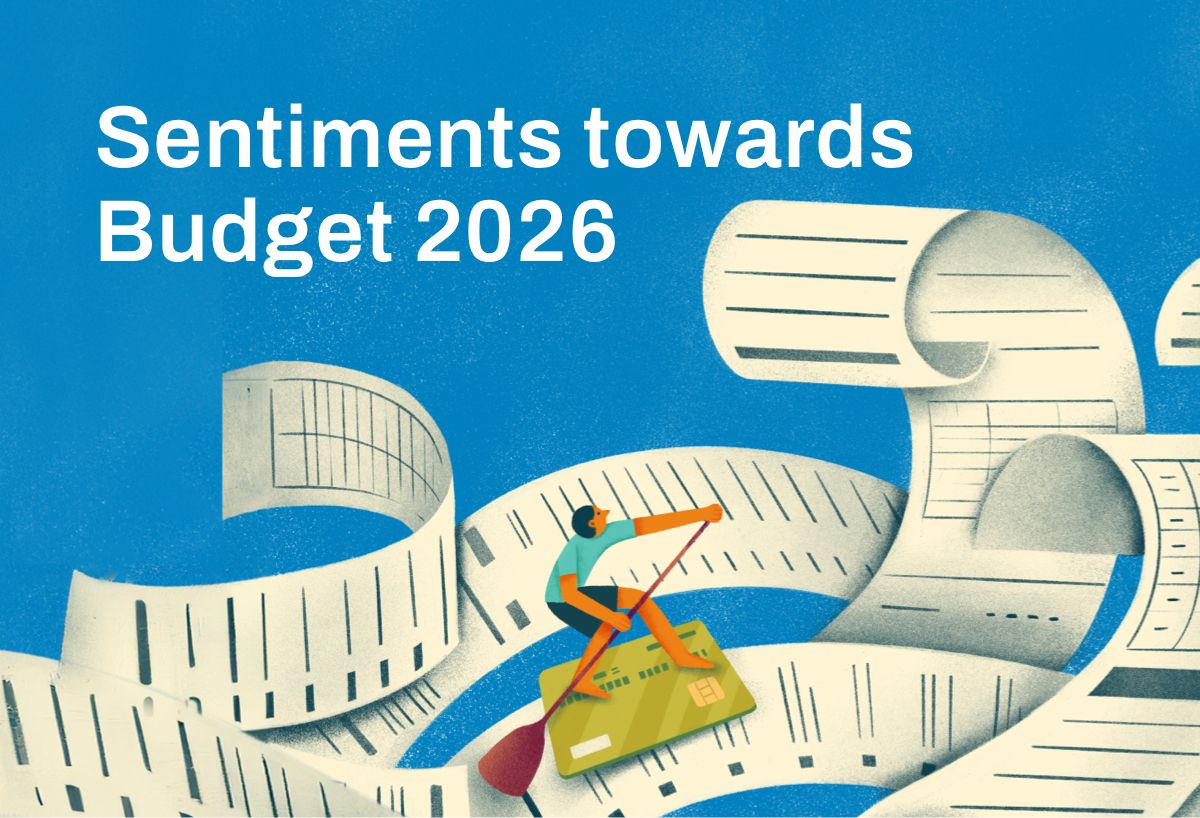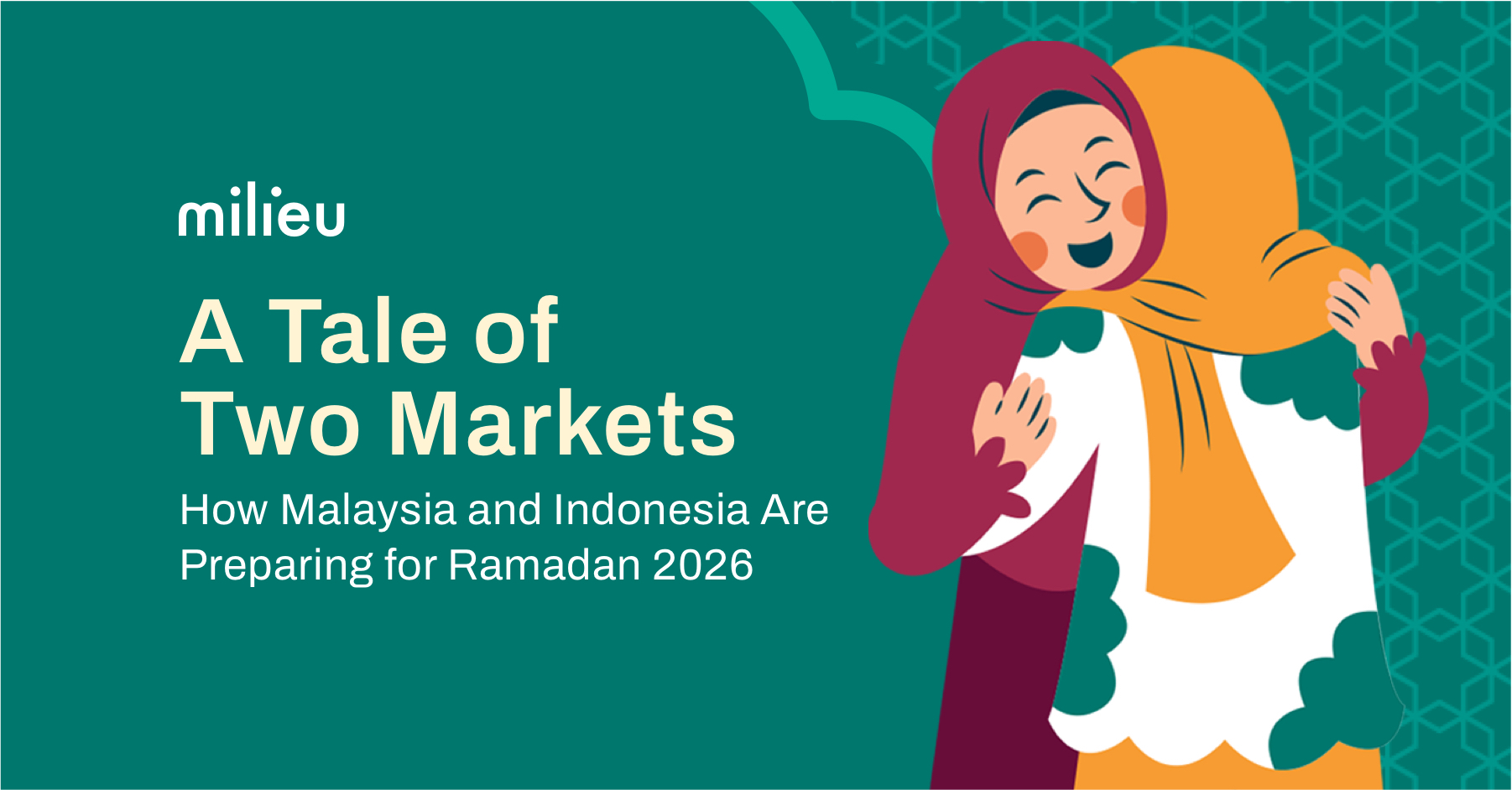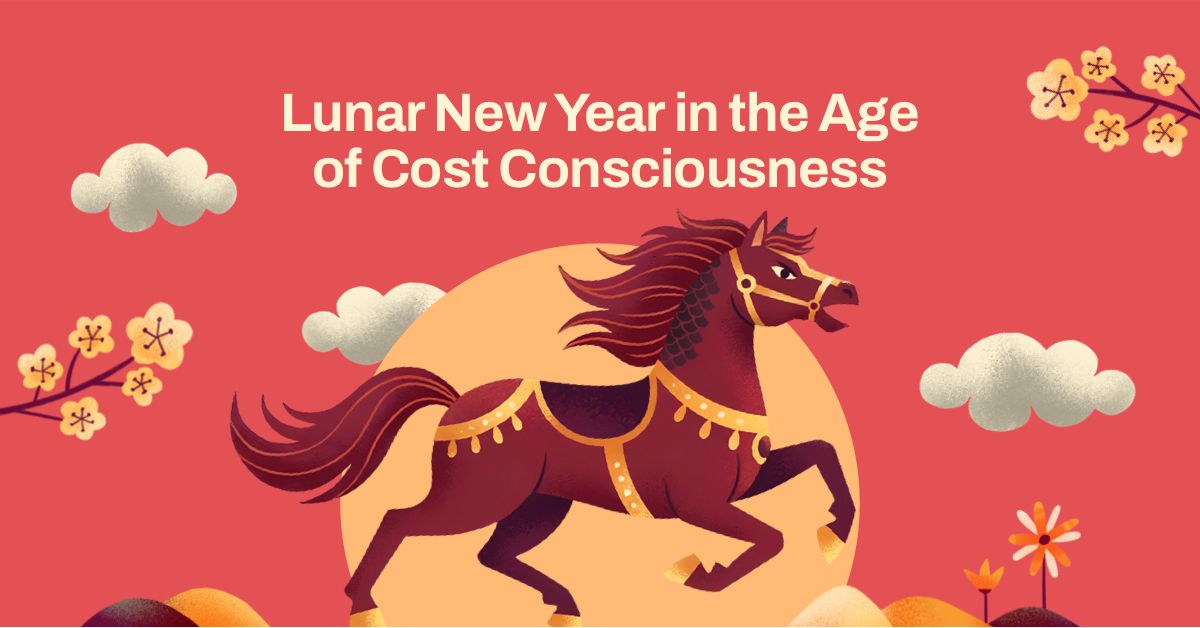Addressing the silent strain impacting SEA

Milieu For Good Program | A collaboration piece between Milieu Insight and Calm Collective Asia
Over the past few years, mental health support has gone from a “nice-to-have” add-on to a true business imperative, thanks to greater awareness. While this is truly a step in the right direction, a silent mental health crisis still exists among Southeast Asian communities - stress. Needless to say, Covid-19s impact has been far-reaching on both economic activity as well as our way of working. With the recurring waves of the virus spreading throughout global communities, life’s rules for engagement seem to be held hostage by the pandemic. All these changes coupled with uncertainty for the future has caused an increase in stress for many.
While short-term stress, such as the stress preparing for a job interview or an important presentation can actually make us more efficient and alert. The effects of long-term stress can actually be harmful and crippling, contributing to both physical and mental illness.
In partnership with Calm Collective, Milieu Insight surveyed n=1,000 respondents across six Southeast Asian countries (n=6,000 overall) to understand their sentiments towards stress on their mental health and their views on seeking help.
A look at stress in SEA
Singapore (81%) and the Philippines (78%) top the list among the six Southeast Asian countries, with respondents agreeing that it is stressful living in their countries, followed by Malaysia (61%), Thailand (59%), Indonesia (51%) and lastly, Vietnam (42%).
‘’The Covid-19 pandemic has changed our lives in many ways. While people deal with fundamental changes to their work, family life and social interactions, it's not surprising that the level of stress is high across the region’’, said Gerald Ang, Co-Founder and CEO of Milieu Insight.


When we asked respondents how often they found themselves under stressful situations, we were surprised by the results - In Singapore, despite 81% saying that it is stressful to live there, only 34% report facing stressful situations almost always or often, similar to most of the countries except for the Philippines (56%). What could be the reasons behind this disparity? We have an inkling that this could be due to the normalisation of stress, where stressors of everyday life are downplayed as common worries. This brought us to the next question - are we failing to understand and pay attention to the impact of stress?
Are we addressing the impact of excessive, prolonged stress?
As mentioned above, stress at healthy levels can actually be beneficial for us. There are two different types of stress - negative stress (for example, getting retrenched) and positive stress (like taking up a new role at your workplace). A good amount of stress pushes us to grow, and the stress of the process is juxtaposed to the rewards of the outcome, allowing us to better savour the fruits of our labour.
We reached out to Sabrina Ooi, Co-founder of Calm Collective Asia, for her thoughts on the survey results. She expressed that ‘’there's no way to completely avoid stress in our daily lives, as there are many things that 'happen' to us that are out of our control (e.g. losing a job, falling sick); however, we can develop a healthier relationship with stress. My perspective towards stress through attending a course on Mindfulness (MBSR) has helped me develop greater awareness towards my triggers and stress reactions (e.g. stomach pain, digestive issues, headaches, irritability), and I learned strategies like deep breathing and meditation to calm myself down.’’
The problem therefore, often lies in identifying stress and there is no manual that tells us exactly how much stress is healthy to each of our unique selves. Oftentimes, we only realise how much we’re straining ourselves in retrospect. Navigating the fine lines between positive versus negative stress, too much or too little stress, and controlling or getting controlled by stress is extremely tricky, even more so if society celebrates stress as a trophy for success, achievement and resilience. Hustle culture, we’re looking at you.
Our survey shows that people don’t seek help when faced with overwhelming stress primarily because they don’t want to burden others around them, and neither do they know what others can do to help them. In addition, stress seems to be perceived as a personal problem that can be handled alone by sheer willpower. We know there is absolutely no shame in getting help.

To gain a deeper understanding of the reasons why people find it difficult to seek help, we reached out to Dr. Karen Pooh, Clinical Psychologist, Alliance Counselling, Adjunct Faculty at Yale-NUS and NTU to share her experience and thoughts on these findings.
“Please don’t tell my family about my mental health issues, I don’t want them to worry, and I don’t want to be a burden to them.”
These are words I often hear my patients saying. It is not surprising that this research conducted by Milieu Insight found similar sentiments cited as the top reason not to seek help for stress across countries in Southeast Asia. In more collectivistic cultures, we want to blend in, preserve harmony, and tend to place others’ needs above our own, even if this means putting our own mental health at risk. In workplace settings, it is easy to slip into a mode of only focusing on the workplace’s goal, which is productivity.
Societal and workplace cultures play crucial roles in influencing the ways we care and prioritise our mental health. Many workplaces have shifted their views on seeing employees as humans rather than just workers. This means championing mental wellness such as setting up well-being programs and available channels, which are psychologically safe, clear and easy for employees to access. Employees are more than workers; they are also our mothers, fathers, friends, our friendly neighbours. We must always choose humanity over productivity.’’
Fear of seeking help at work still persists
Beyond tackling stress itself, we also took a look at the socio-cultural attitudes towards seeking help at work among employed respondents.

More so than the other countries, respondents in Singapore are averse towards reaching out for help and turning down extra work even if they already have enough on their plates. There also seems to be a fear of offending others at work, with only 62% saying that they think their colleagues or bosses would be accepting if they were to turn down additional work assigned to them. Yet, not only those in Singapore, but across Southeast Asia, our study found that about 9 in 10 say that they would agree to help their colleagues with work even if they are already busy.
While intentions may be good, self-sabotaging behaviour can often lead one to bite off more than they can chew. Beyond just tackling overwhelming stress itself, we need to take on a preventative approach that helps people to understand their emotions better, empowers them to draw boundaries, and regulates daily stressors.
Where does stress come in when we talk about mental health?
Stress is part and parcel of life, but too much of it can be crippling to our mental health. However, stress is often seen as a badge of honour or likened to productivity and success. This can, therefore, blur the lines between healthy and unhealthy stress.
When asked about her journey and the effects of stress on her mental health, Sabrina opened up and shared her experience - ‘’Personally, I sought professional help (therapy) when it was too late. My mental state meant I was unable to cope at work as I had overwhelmingly low energy & motivation due to depression, and I had suicidal ideation. In such a state, I was unable to be present in my therapy sessions - eventually, I had to seek help from a psychiatrist to be treated with medication. Once I started feeling better with medication, my therapy sessions were much more effective in helping me get better.
I've since learnt it's important to seek help at a much earlier stage, e.g. when one is feeling stressed/anxious before it spirals out of control. Getting help "too late" is akin to getting treatment when you have Stage 4 cancer. As much like how we take care of our physical health or teeth, we should also be having similar regular checkups for our mental health.’’

While stress comes from many aspects of life, we often don’t link it to our mental health. When we asked respondents what factors affect their mental well-being, many of them cite factors such as personal relationships and work or study commitments.
It’s common to hear individuals talk about their jobs causing stress or personal responsibilities taking up too much of their headspace. Yet, we hardly hear individuals talk about them in relation to their mental health. This again, points towards the normalisation of stress and perhaps, as what the Gen Zs or Millennials may say, it is what it is.

Across the 6 countries, respondents from Singapore (20%) and The Philippines (15%) felt that they do not handle stress well. On the other hand, more than half of respondents from Indonesia and Vietnam felt that they were good at doing so.


Although more than two-thirds of respondents say that they proactively care about their mental health, they do not seem to lend the same amount of importance to stress. Aside from Vietnam and Malaysia, 53% in Singapore and close to half of respondents in Indonesia (49%), Thailand (49%) and The Philippines (46%) are willing to seek professional help only after stress gets too overwhelming. Burnout and even ‘death by overwork’ were major issues long before the coronavirus arrived. Despite that, stress still seems to be viewed primarily as a personal problem that should be handled alone and many regard it as a feeling that will just get better with time.
Our CEO, Gerald Ang shares his own personal reflections on why the topic of mental health should be addressed so people understand the detrimental impacts it can have on a person. ‘’If left unchecked, stress can take a significant toll on our mental health. I can personally attest to that! It is important that we band together to find ways to help the broader community deal better with stress. I hope the insights from this study can provide a sense of comfort to those feeling the burden of stress on their mental health that they are not alone in dealing with these challenges. Employers also need to recognise that chronic stress and its related illness caused by a poor working environment can be as serious as a physically unsafe environment. This collaboration is the first of many that we will be doing under our ‘Milieu for Good’ program. We do hope to help more social organisations uncover insights that will make a positive impact to our community.’’
Detailed findings of this study will be shared on Day 2 of CalmCon 2021, the virtual health and wellbeing festival, organised by Calm Collective Asia.
Methodology
This survey was conducted via Milieu’s proprietary survey community with N=1000 respondents each from Singapore, Thailand, Vietnam, Malaysia, Indonesia, and The Philippines, aged 16 and above. The data is representative of the online adult population (aged 16 and above), and the margin of error is +/- 3% at 95% confidence level. Data was collected in October 2021.





